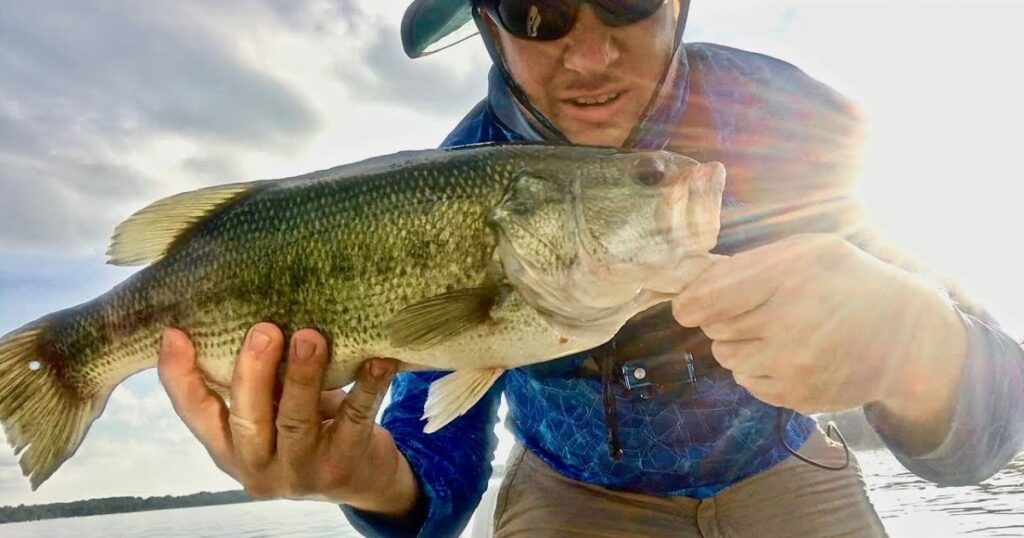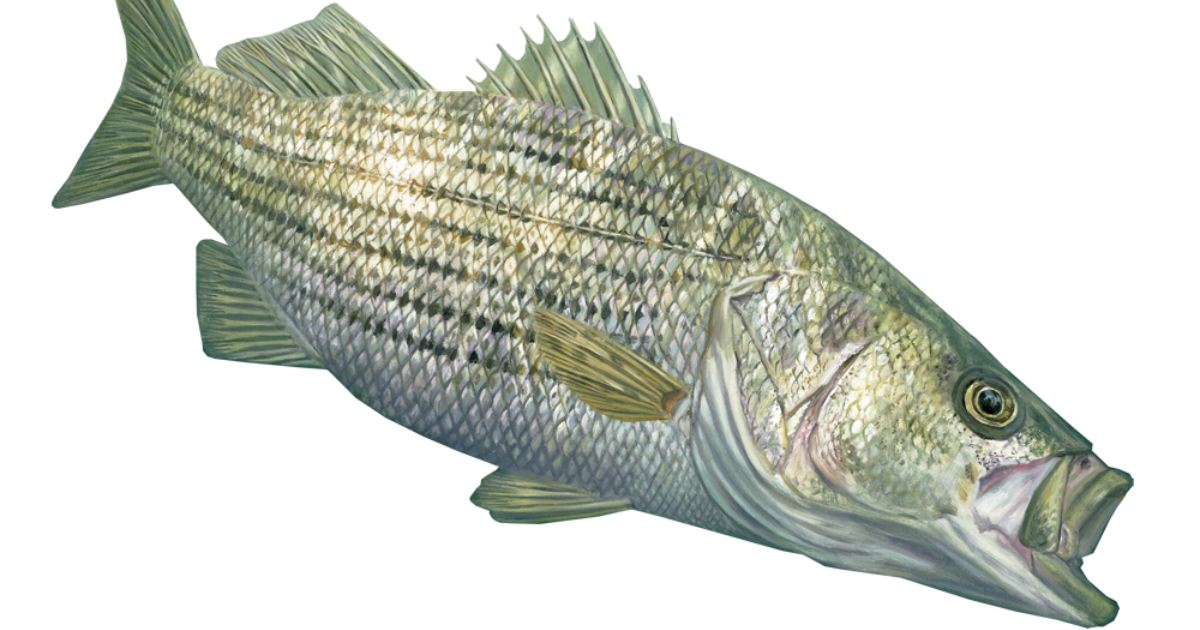Eating bass fish refers to the consumption of bass, a popular freshwater fish known for its delicious taste. Anglers often catch bass for both sport and culinary enjoyment. This practice involves cleaning, seasoning, and cooking the fish to create a flavorful dish that is appreciated by many seafood enthusiasts.
Curious about culinary possibilities? Imagine savoring a delectable dish featuring the elusive bass fish. From its flaky texture to its subtle taste, exploring the culinary realm of bass adds excitement to your dining experience. Dive into the question: Can You Eat Bass Fish? Discover the delicious potential that lies beneath the surface.
While bass fishing is a popular recreational activity, the question of whether you can eat bass fish arises due to concerns about taste and safety. Bass is indeed edible, and many people savor its mild, white flesh. It’s essential to be aware of local regulations, potential contaminants, and proper preparation methods to ensure a delicious and safe dining experience with bass.
Bass Fish Culinary Potential
Bass fish, with its tender and mild flavor, holds immense culinary potential. When cooked, its meat has a delicate texture that easily absorbs various flavors, making it a versatile ingredient for different recipes. From grilling to pan-searing, the adaptability of bass allows chefs and home cooks to experiment with diverse cooking methods, ensuring a delightful dining experience for those seeking a unique taste.
Furthermore, bass can be easily paired with an array of herbs, spices, and sauces, allowing individuals to personalize their culinary creations. Its mild taste provides a perfect canvas for various seasonings, making it a favorite choice for those who enjoy experimenting in the kitchen.
Nutritional Value of Eating Bass
Beyond its gastronomic appeal, bass offers significant nutritional benefits. Rich in lean protein, bass contributes to muscle development and repair. It is a good source of essential nutrients such as omega-3 fatty acids, which promote heart health and support cognitive functions. For those mindful of their calorie intake, bass provides a satisfying and nutritious option, aligning with a balanced diet and a healthy lifestyle.
Bass contains vitamins and minerals like B-complex vitamins, selenium, and phosphorus, enhancing its nutritional profile. Including bass in one’s diet can contribute to overall well-being, providing a delicious alternative for individuals seeking both taste and nutrition in their meals.
Bass as a Gourmet Delight

Elevating the dining experience, bass has earned its place as a gourmet delight. Its delicate taste and flaky texture appeal to discerning palates, making it a popular choice in high-end restaurants. Chefs often showcase their culinary expertise by preparing bass in innovative ways, combining unique flavors and textures to create a memorable gastronomic experience.
Whether served as a fillet with a delicate sauce or as the centerpiece of a sophisticated seafood dish, bass adds a touch of refinement to any menu. As a gourmet delight, bass continues to captivate food enthusiasts who appreciate the finer aspects of culinary artistry.
Bass in Traditional Cuisine
While bass has found its way into modern gourmet dishes, it also holds a significant place in traditional cuisine. In many cultures, bass has been a staple protein, prepared using age-old recipes that showcase the local flavors and culinary traditions. From Southern-style bass preparations to Asian-inspired dishes, the versatility of bass allows it to seamlessly integrate into diverse culinary heritages.
The familiarity of bass in traditional cuisine highlights its enduring popularity, connecting generations through shared meals and cherished recipes. Its presence in both modern and traditional kitchens showcases the universal appeal of this versatile fish.
Cooking Techniques for Bass
Mastering the art of cooking bass involves understanding various techniques that enhance its natural flavors. Grilling, baking, and pan-searing are popular methods that preserve the fish’s tenderness while infusing it with complementary tastes. The key lies in balancing cooking times to ensure a flaky texture without compromising moisture.
Marinating bass with herbs and spices before cooking enhances its taste profile, creating a harmonious blend of flavors. Aspiring chefs can explore different cooking techniques to discover the nuances of bass preparation, unlocking a world of culinary possibilities.
Health Benefits of Consuming Bass
Incorporating bass into one’s diet brings forth numerous health benefits. With its low fat content and high protein levels, bass supports muscle health and aids in weight management. The omega-3 fatty acids in bass contribute to cardiovascular well-being, reducing the risk of heart-related issues.
The nutrients in the bass, including vitamins and minerals, play a vital role in promoting overall health. Choosing bass as a regular part of a balanced diet aligns with a wellness-focused lifestyle, providing both flavor and nutritional value.
Bass Fishing for Food Enthusiasts
For food enthusiasts seeking a hands-on approach to their culinary experience, bass fishing offers a unique and rewarding adventure. Catching bass and preparing it fresh from the water adds an element of excitement and satisfaction to the dining experience. This connection with the food source enhances the appreciation for the fish’s journey from the water to the plate.
Cultural Significance of Bass in Cuisine

In various cultures, bass holds a distinct cultural significance in culinary practices. Its presence in festive meals, celebrations, and traditional gatherings symbolizes abundance and prosperity. The preparation and sharing of bass-based dishes often become a focal point in cultural rituals, strengthening community bonds and preserving culinary heritage.
Risks and Considerations when Eating Bass
While bass offers numerous culinary and nutritional benefits, it is essential to be aware of potential risks and considerations. Some bodies of water may contain contaminants like mercury, which can accumulate in fish. Therefore, individuals, especially pregnant women and young children, should be cautious about the source of bass and its potential mercury levels.
Overfishing and environmental concerns can impact bass populations. Responsible sourcing and consumption practices are crucial to maintaining ecological balance and preserving the availability of this prized fish for future generations. Awareness of these risks ensures that enjoying bass remains sustainable and healthy.
FAQ’s
Is it safe to eat bass fish?
Eating bass is generally safe, but be mindful of the water source due to potential contaminants like mercury. Choose responsibly sourced bass to ensure a healthy dining experience.
What cooking methods suit bass best?
Bass adapts well to grilling, baking, and pan-searing. Experimenting with different techniques allows you to unlock the full flavor potential of this versatile fish.
Does bass have nutritional benefits?
Absolutely! Bass is a rich source of lean protein, omega-3 fatty acids, and essential vitamins, contributing to muscle health and overall well-being.
Why is bass considered a gourmet delight?
Bass’s delicate taste and flaky texture make it a favorite in high-end restaurants. Chefs often showcase their skills, creating sophisticated dishes that elevate the dining experience.
Are there cultural traditions around bass in cuisine?
Yes, bass holds cultural significance in various traditions, symbolizing abundance and prosperity. Its presence in festive meals strengthens community bonds and preserves culinary heritage.
Conclusion
Can you eat bass fish? Absolutely! With its versatile culinary potential, nutritional value, and status as both a gourmet delight and a traditional favorite, bass offers a delightful and healthy dining option. From mastering various cooking techniques to understanding its cultural significance, bass proves to be a fish with a rich story to tell.
Whether enjoyed in high-end restaurants, prepared in traditional dishes, or caught firsthand through bass fishing adventures, this fish continues to captivate food enthusiasts. It’s essential to be aware of considerations like responsible sourcing and potential contaminants, ensuring that the joy of eating bass remains both sustainable and safe.

